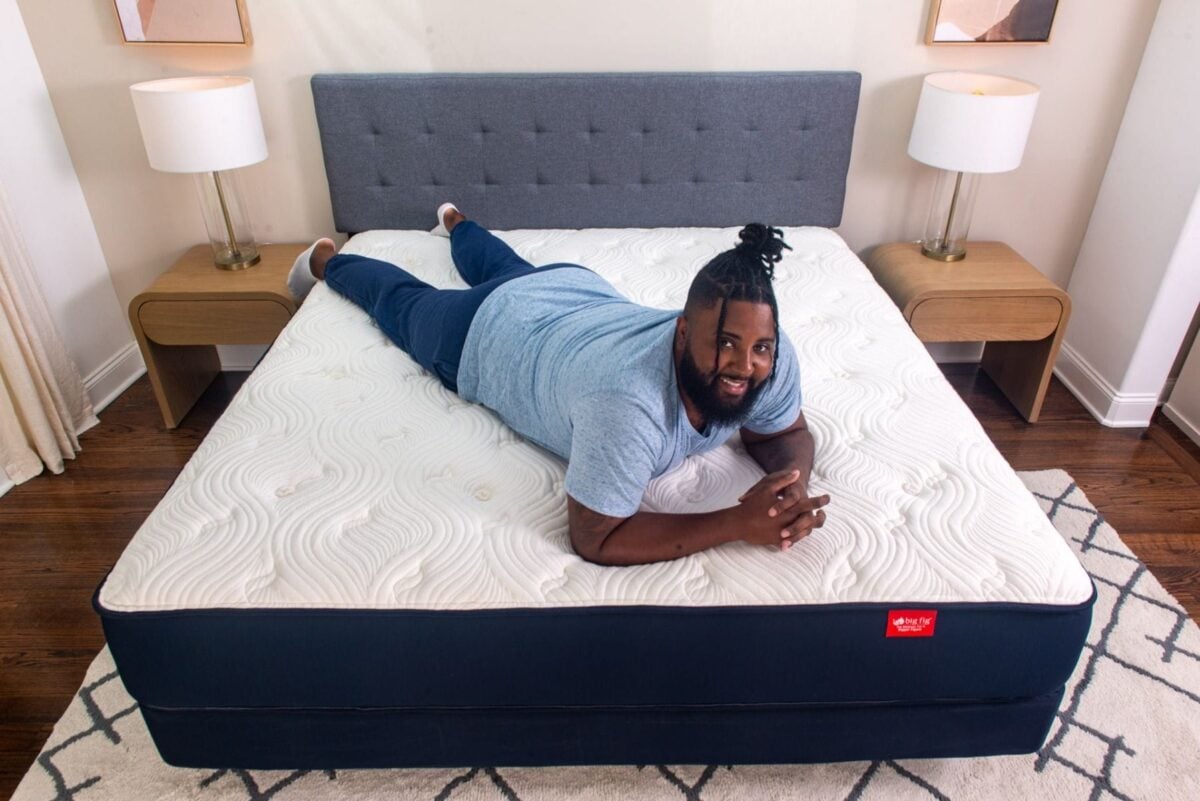From Fatigue to Forgetfulness: The Effects of Sleep Deprivation
Understanding the Effects of Sleep Deprivation
Sleep deprivation is more than just a passing feeling of tiredness; it’s a profound challenge that can disrupt your life and jeopardize your health. Many individuals underestimate its implications, leading to a host of consequences that can affect everything from mood to physical well-being. Here’s what you might experience:
– Fatigue: A persistent sense of tiredness that drains your energy.
– Forgetfulness: Impaired memory and difficulty maintaining focus.
– Mood Swings: Increased irritability, anxiety, and even depression.
– Health Risks: Elevated chances of heart disease, diabetes, and obesity.
When sleep becomes scarce, its fallout impacts not just your mental acuity but also your physical health, daily productivity, and general life satisfaction. Chronic sleep deprivation can lead to severe health problems, including heightened risks of heart disease, diabetes, and even accidents, whether at work or on the road.
I’m Ben Trapskin, the founder of Yawnder. Having experienced the devastating effects of sleep deprivation firsthand, my journey to reclaiming my sleep has equipped me with a wealth of knowledge about overcoming these hurdles.
Let’s delve deeper into what sleep deprivation entails and its ripple effects on various aspects of our lives.
What is Sleep Deprivation?
Sleep deprivation refers to a state when you don’t get enough sleep for optimal functioning. But it exceeds the mere notion of fatigue. According to the Centers for Disease Control and Prevention, nearly one in three adults in the U.S. regularly fail to meet their sleep needs.
Understanding Sleep Deficiency
Sleep deficiency encompasses several aspects:
– Insufficient Sleep: This represents classic sleep deprivation.
– Irregular Sleep Patterns: Such as working irregular hours or night shifts.
– Poor Sleep Quality: Inadequate deep sleep that your body craves.
– Sleep Disorders: Conditions like insomnia or sleep apnea that inhibit restful sleep.
Think of sleep deficiency as an umbrella term capturing all the ways in which your sleep may be compromised.
Common Sleep Disorders
1. Insomnia: Difficulty falling or staying asleep.
2. Obstructive Sleep Apnea: Interruptions in breathing that disrupt sleep.
3. Restless Legs Syndrome: A compulsion to move the legs, hindering sleep.
Millions of Americans grapple with these disorders which further complicates the imperative for quality sleep. If you suspect you may be affected, consult a healthcare professional.
Why Sleep is Important
Sleep is a fundamental human need akin to food and water. Its consequences stretch beyond simple fatigue — inadequate sleep is closely linked to debilitating health conditions such as heart disease, obesity, high blood pressure, and depression.
Fun Fact: Almost 40% of adults report dozing off during the day unintentionally at least once a month!
Sleep’s multifaceted role in our lives includes physical repair, cognitive processing, and hormonal regulation. Hence, inadequate sleep influences not just energy levels but all bodily functions.
The Immediate Effects of Sleep Deprivation
The repercussions of sleep deprivation can be felt almost instantly, often manifesting as:
Mood Changes
Experiencing sleep loss significantly alters your mood. You might feel irritable, easily frustrated, or inexplicably anxious. Tasks that typically seem trivial can provoke undue stress.
Frequent mood swings can arise, making stable relationships and a positive outlook challenging to maintain.
Cognitive Impairment
Sleep deprivation also diminishes cognitive function. You may struggle to concentrate, making it difficult to engage in tasks, whether at work or school.
Memory consolidation — a crucial process that happens during sleep — falters without adequate rest. This can lead to forgetfulness, causing frustration both academically and professionally.
Moreover, decreased sleep leads to slower reaction times, turning activities like driving into a perilous endeavor.
Long-term Health Consequences of Sleep Deprivation
Heart Disease and Stroke
Chronic sleep deprivation takes a toll on heart health. During sleep, blood pressure typically drops, which promotes cardiovascular health. Without sufficient sleep, blood pressure remains elevated, instigating chronic inflammation and raising risks for serious conditions like heart disease and stroke.
Studies indicate that individuals who consistently sleep less than seven hours per night are at increased risk for these dangerous conditions.
Diabetes and Metabolic Issues
Insufficient sleep can disrupt metabolic functioning. It hampers your body’s ability to process sugar, leading to insulin resistance and potential type 2 diabetes risk. Research has demonstrated a clear correlation between sleep deprivation and adverse glucose tolerance results.
Additionally, lack of sleep disturbs hunger hormones, prompting cravings for sugary and unhealthy foods, further exacerbating weight gain and metabolic dysfunction.
Mental Health Conditions
The link between sleep deprivation and mental health challenges is unmistakable. Poor sleep can intensify anxiety and depressive symptoms, disrupt emotional regulation, and impair judgment and decision-making. Furthermore, a noticeable increase in risk-taking behavior can occur among the sleep-deprived, amplifying mental health issues.
Impact on Daily Life and Safety
Workplace and Academic Performance
Lack of sleep can severely hinder productivity at work or in school. Cognitive problems manifest as decreased focus, memory issues, and slow decision-making skills.
Tasks may take longer than usual to complete, with a heightened likelihood of making mistakes — particularly in detail-centric roles. This trend extends to academic settings, where students often fail to absorb and retain new material.
Driving and Safety Risks
The dangers of sleep deprivation extend to driving. Impaired reaction times and the phenomenon known as microsleep can lead to devastating accidents.
According to the National Highway Traffic Safety Administration, drowsy driving contributes to thousands of crashes annually, with often tragic results.
How Much Sleep Do You Need?
Sleep Needs by Age Group
Knowing how much sleep is essential for you is crucial. Here’s a guideline by age:
– Infants (4-12 months): 12-16 hours
– Toddlers (1-2 years): 11-14 hours
– Preschoolers (3-5 years): 10-13 hours
– School-age children (6-12 years): 9-12 hours
– Teens (13-18 years): 8-10 hours
– Adults (18 years and older): 7-9 hours
These recommendations can enhance physical and mental performance. Individual needs, however, may vary.
Causes of Sleep Deprivation
Identifying the causes of sleep deprivation is key to combating it. Several factors play a role:
Lifestyle Factors
– Poor Sleep Habits: Engaging in stimulating activities before bed can hinder sleep quality.
– Busy Schedules: Juggling too many tasks can result in sleep neglect.
– Electronics Use: Blue light from screens can disturb melatonin, making it harder to wind down.
Health and Environmental Factors
– Stress: Chronic stress releases hormones that disrupt sleep.
– Noisy Environments: External disturbances can prevent restful sleep.
– Medical Conditions: Chronic pain or respiratory issues can inhibit sleep.
Sleep Disorders
Conditions such as insomnia, obstructive sleep apnea, and restless legs syndrome also contribute significantly to sleep deprivation.
Preventing and Treating Sleep Deprivation
Improving Sleep Hygiene
Establishing good sleep habits can markedly improve your rest:
– Consistent Schedule: Regular sleep times help synchronize your internal clock.
– Comfortable Environment: A dark, cool bedroom enhances sleep quality.
– Pre-Sleep Rituals: Engage in calming activities before bedtime to signal wind-down time.
Managing Stress
Adopting relaxation techniques can significantly ease the path to better sleep:
– Mindful Practices: Meditation, deep breathing, and yoga can mitigate stress levels.
Medical Interventions
When lifestyle changes aren’t enough, seek professional help. Sleep diaries, consultations, and potential sleep studies may be warranted to diagnose underlying issues.
Conclusion
Sleep is not a luxury; it’s a necessity for health, safety, and quality of life. The effects of sleep deprivation ripple across every aspect of our existence, affecting mood, cognitive function, long-term health, and daily safety.
At Yawnder, we emphasize the critical role sleep plays in nurturing a healthy lifestyle. Prioritizing sleep health paves the way toward improved daily functioning and overall well-being.
By adopting good sleep hygiene practices, managing stress effectively, and seeking professional guidance when needed, you can successfully navigate the challenges of sleep deprivation, shielding your health and enhancing your life for the better.
For more insights on sleep deprivation and steps toward better rest, visit our Yawnder Sleep Deprivation Effects page. Prioritize your sleep today and embark on the journey to a healthier, more vibrant life.


















